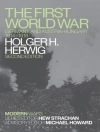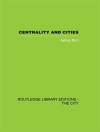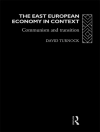This collection explores the historical origins of our modern concepts of intellectual or learning disability. The essays, from some of the leading historians of ideas of intellectual disability, focus on British and European material from the Middle Ages to the late-nineteenth century and extend across legal, educational, literary, religious, philosophical and psychiatric histories. They investigate how precursor concepts and discourses were shaped by and interacted with their particular social, cultural and intellectual environments, eventually giving rise to contemporary ideas. The collection is essential reading for scholars interested in the history of intelligence, intellectual disability and related concepts, as well as in disability history generally.
Innehållsförteckning
1. Introduction: the emergent critical history of intellectual disability – Patrick Mc Donagh, C.F. Goodey, and Tim Stainton
2. Conceptualization of intellectual disability in medieval English law – Wendy J. Turner
3. ‘Will-nots’ and ‘Cannots’: tracing a trope in medieval thought – Irina Metzler
4. ‘Some have it from birth, some by disposition’: foolishness in medieval German literature – Janina Dillig
5. Exclusion from the eucharist: the seventeenth-century church and the creation of ‘intellectually’ disabled people – C.F. Goodey
6. ‘A defect in the mind’: cognitive ableism in Swift’s Gulliver’s Travels – D. Christopher Gabbard
7. Sensationalism and the construction of intellectual disability – Tim Stainton
8. Peter the ‘wild boy’: what Peter means to us – Katie Branch, Clemma Fleat, Nicola Grove, Tim Lumley Smith, and Robin Meader
9. ‘Belief’, ‘opinion’ and ‘knowledge’: the idiot in law in the the long eighteenth century – Simon Jarrett
10. Idiocy and the conceptual economy of madness – Murray K. Simpson
11. Visiting Earlswood: the asylum travelogue and the shaping of ‘idiocy’ – Patrick Mc Donagh
Index












